Staff report
Local attorney Ben Dusing and his friend and colleague John Gardner have been to Ukraine many times now since Russia invaded last year, as foreign volunteers answering the overwhelming demand for humanitarian assistance.
They returned home for an extended hiatus for some welcome time with their families and to catch up with business issues.
Dusing’s role in the foreign volunteer effort and his Russian-language skills (learned during his year in Russia as a college student), and his and Gardner’s combined skill-set has earned them a reputation on the ground as trusted and reliable partners. Many Ukrainian and foreign volunteer organizations have come to depend on them.
They’ve also earned a reputation for being especially courageous and resourceful. This reputation — earned while working in and around the fighting in the newly-liberated territories in Ukraine’s east and south last fall, supporting special missions for elements of the Ukrainian Armed Forces, and serving in so-called “forward positions” where humanitarian work is extremely dangerous — has now propelled their humanitarian involvement to still further heights. And raised their profile considerably.
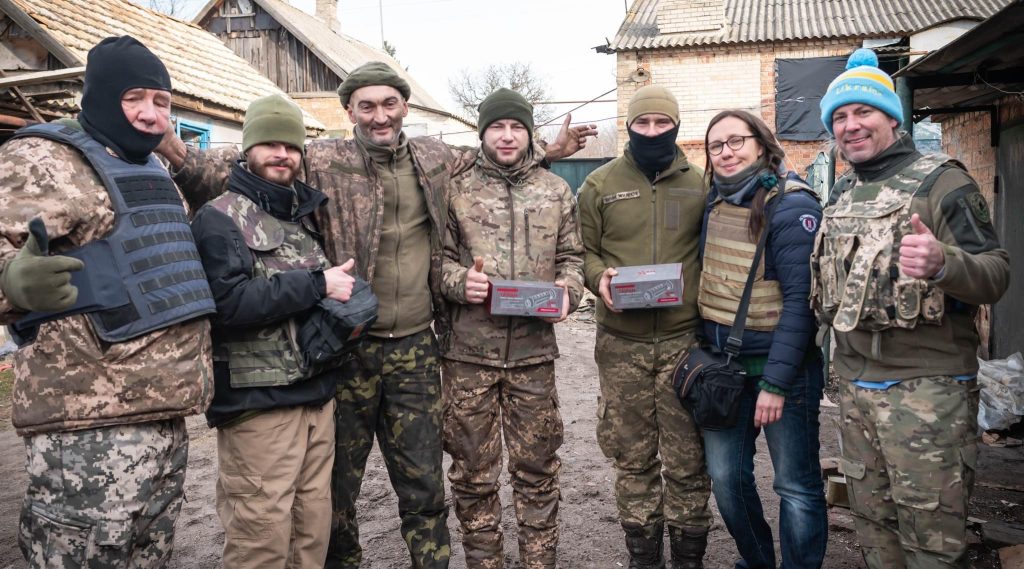
“John and I have a sincere desire to help the Ukrainian people,” Dusing said. “It’s been a remarkable journey, but none of it was planned. It’s the humanitarian need on the ground that has charted our course.”
A remarkable journey, indeed. What began with Dusing traveling to the Polish-Ukrainian border a little over a year ago for a brief time to assist the refugees fleeing the fighting is, a year later, a full-blown humanitarian operation. It involves Dusing and Gardner and also a major donor-partner who believed what they were doing and invested in their “good work.”
The support of Will Waggoner, a former Marine now an accomplished New Mexico attorney who Dusing met on his first trip to the border, has been pivotal. Among other contributions, Waggoner put up half the capital to acquire the extremely rare and valuable humanitarian assets – most notably two ambulances and a 4×4 van convertible van – that made Dusing and Gardner uniquely equipped to be of service.
“I think Will saw where things were heading before I did,” Dusing says. “He encouraged me along the way early on and always told me that I’d get to a point where I needed his help to go further and do more.”
What Waggoner envisioned was a full-blown humanitarian operation on the ground in Ukraine essential to the overall humanitarian effort and providing services to those most desperately in need of them.
“Ben just had an energy and commitment about him that resonated and he’s been involved from the beginning and I saw how respected he was, what a leader he was, and how expansive his network over there is,” Waggonner says. “He was doing a ton of good for the Ukrainian people and I wanted to support that and expand it.”
Playing the bigger role Dusing and Gardner are now playing has required that both embrace a unforeseen “frontline humanitarian” role, doing things that have the biggest impact.
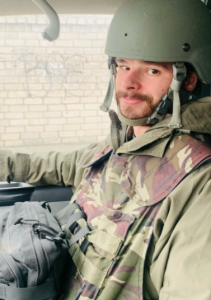
The pair started doing the “frontline” work when they became equipped to do it – ambulances are extremely scarce in Ukraine – and they were pressed into service. The need is tremendous and there has been a lot of attrition as the ranks of the frontline humanitarians have been depleted by rotations home, injuries, and deaths.
Dusing and Gardner cut their “frontline” teeth back in the fall, supporting a battalion of the Ukrainian Armed Forces in the Battle of Bakhmut, the fiercest and most grisly fighting of the conflict. Despite having no medical training and no military experience, the pair were requested by one of Dusing’s contacts with the battalion to help with so-called “second line evacuations.”
The work involved waiting at staging areas 1-2 kilometers from the front lines for critically-injured soldiers pulled from the battlefield and transporting them to local field hospitals.
Despite harrowing experiences, Dusing and Gardner gravitated to the work.
“We were told that there aren’t many people with the equipment to do it and that we could be taught what we needed to know,” Gardner says. “The equipment – the vehicles, really – and the willingness to put our lives at risk were the only prerequisites, and it was us or no one.”
After serving in Bakhmut, Dusing and Gardner spent time running in and out of the combat zones in the Donbas delivering supplies to battalions fighting near the front lines there. During this time, they remained based in Kharkiv, helping their fellow foreign volunteers in the more-stabilized Kharkiv region when their “frontline” services weren’t in demand.
“Bigger organizations like ours rely on Ben and John to support what we do, and we couldn’t do it without their support,” says Paul Hughes, founder and President of HUGS, a leading Canadian humanitarian non-profit with a vast presence in Ukraine. “Frankly they aren’t just helpful any more, they’re necessary.”
Their expanding role has also meant expanding their service-area. Dusing and Gardner spent the last part of their most recent trip in Kherson, a major city in the south, located on the Dneiper River, liberated in November but subjected to constant, daily shelling ever since. A local Ukrainian organization requested their urgent assistance evacuating non-ambulatory citizens from the city and surrounding villages. The Russian military is dug in just on the other side of the river and shells the civilian population around-the-clock. Dusing and Gardner couldn’t say “no.” They organized an 8-person, 4-vehicle mission to Kherson, arriving under the cover of darkness to link up with their local Ukrainian contacts, who had arranged their accommodations. For eight days, Dusing and Gardner worked with the Ukrainian volunteers to evacuate the elderly and non-ambulatory residents of Kherson from the city – people who in danger of being killed by the constant shelling if not evacuated right away.
“It’s scary,” says Dusing. “But at the end of the day, so long as it’s us or no one, it’s going to be us.”
While they were in Kherson, the shelling was so intense and proximate at night that Dusing and Gardner went to bed with uncertainty. One night the apartment block across the street was hit.
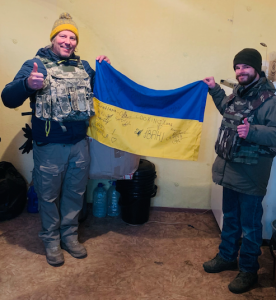
Now very much “on the map,” they entertain constant requests for their services from every combat zone in Ukraine, even when they are back home. Dusing maintains constant contact. For his part, Waggoner asked Dusing to serve as a board member of his newly-formed non-profit, World Aid Runners (“W.A.R.”). Waggoner wants to implement Dusing’s concept in other humanitarian disaster areas like Turkey and Syria and is encouraging him to consider expanding his reach. Waggoner has secured major donors to purchase the equipment needed on the ground, most especially more ambulances. Dusing was also asked by a group of former U.S. Marines responsible for the training of a new Ukrainian infantry unit, the 422nd Rifle Brigade, to help in western Ukraine, an offer he declined, citing family reasons.
“Being a dad is still my number one job,” says Dusing, the father of four children.
The conversion from lawyer to humanitarian has been quick and, it would seem, nearly complete.
“We wear more camo than collars these days,” Dusing quips.
Today, Dusing and Gardner are figuring out their long-term plans, knowing that they need to be a part of the humanitarian efforts until the end of the war.
In the short term, the pair tentatively plan to return to Kherson this month for another two-months of service on the front lines.







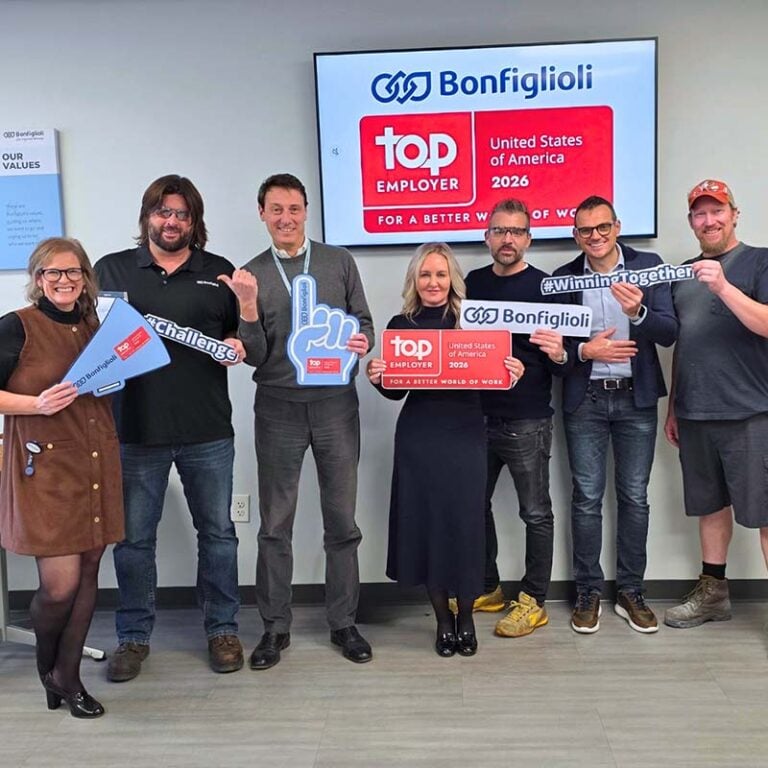


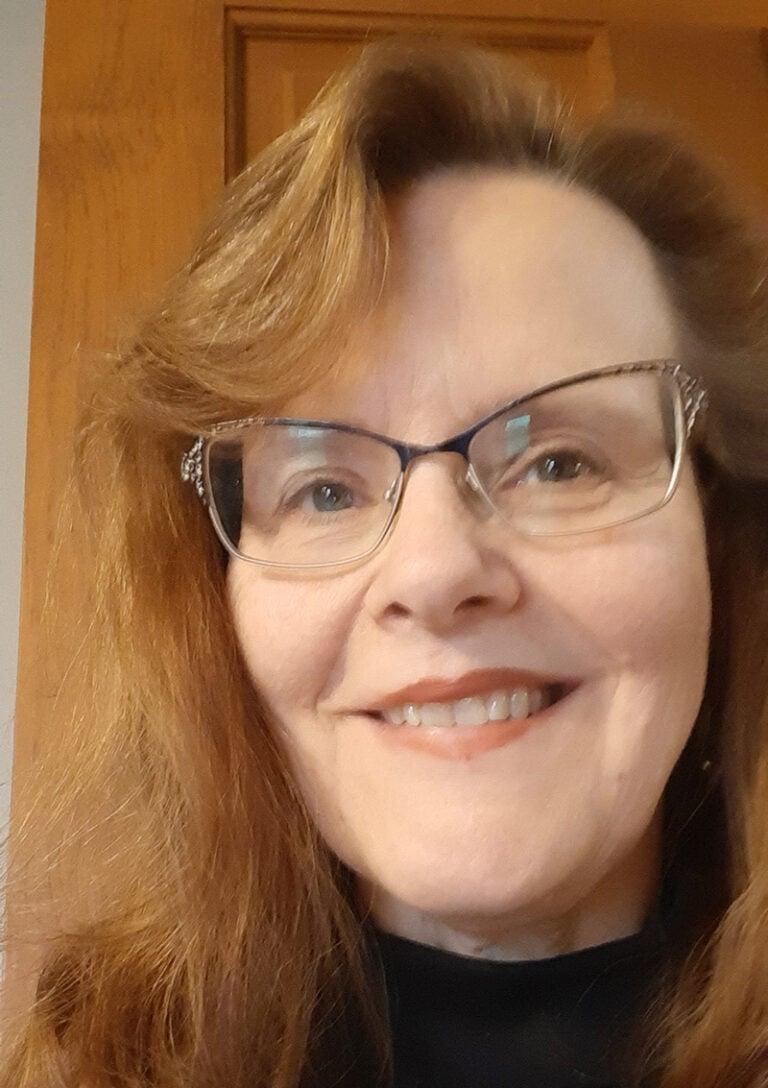

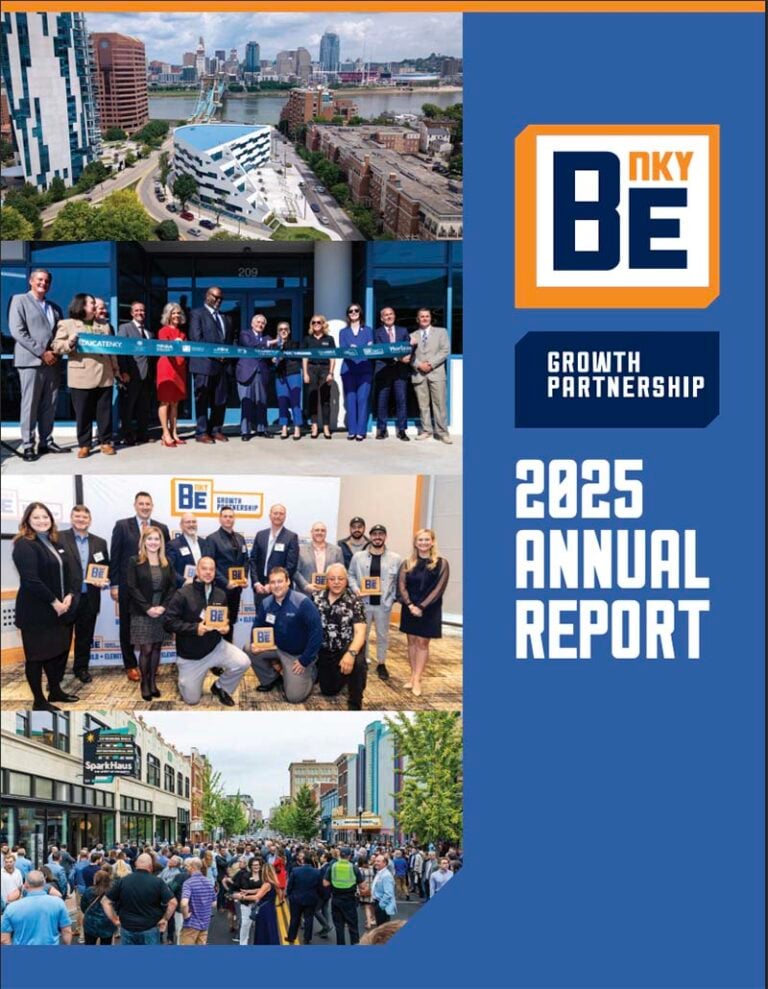


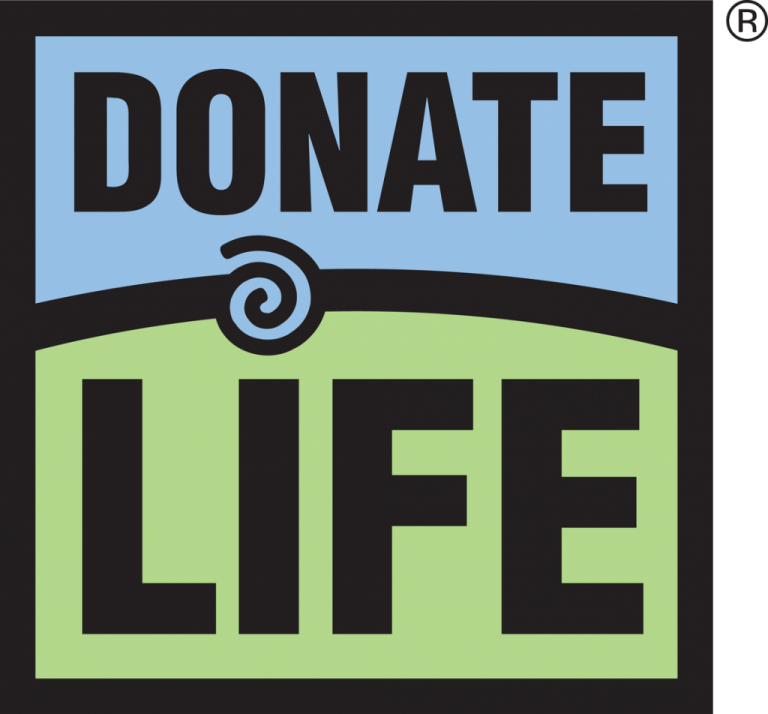
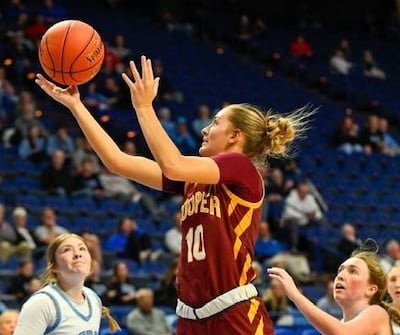

What an amazing difference one man can make by simply using his skill set and caring for his fellow man. Thank you Ben & John ~ stay safe.